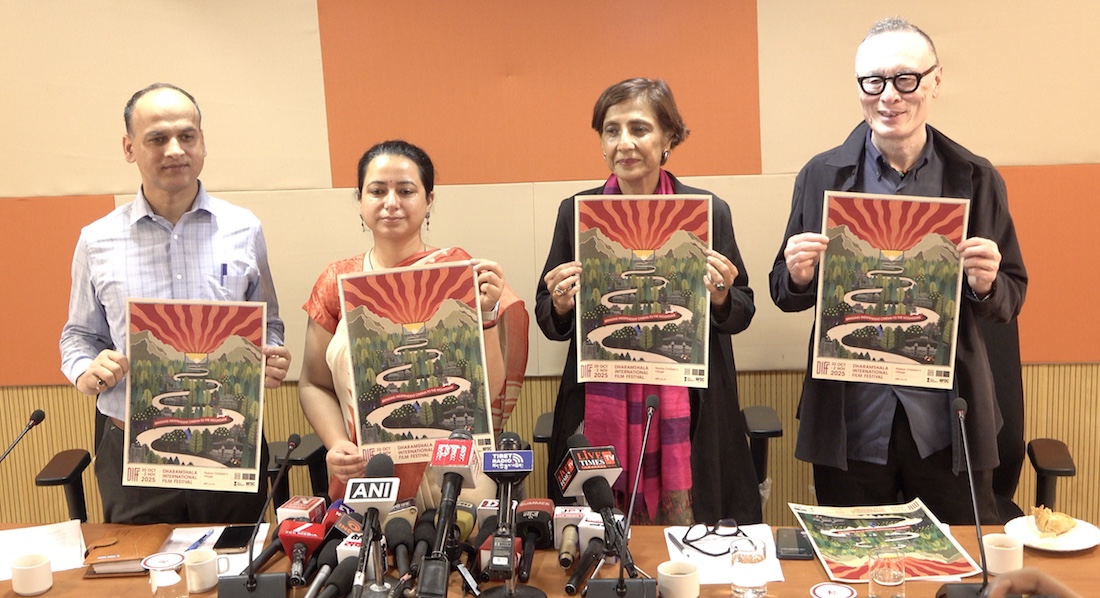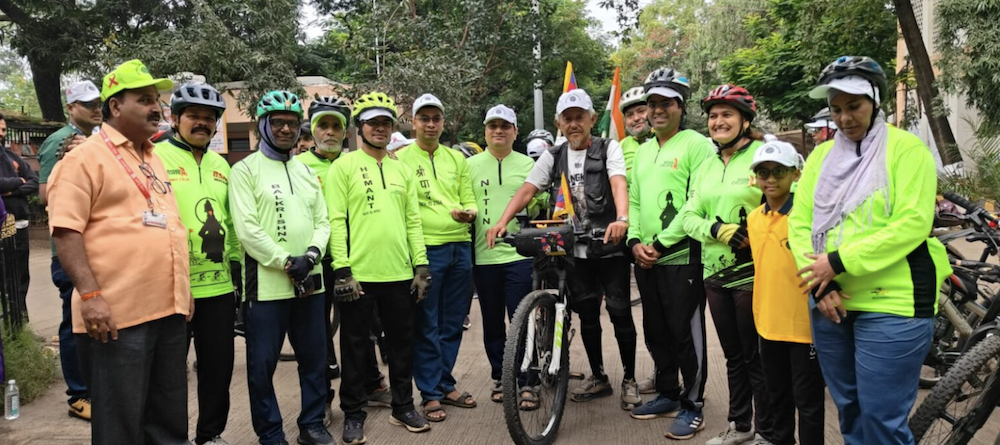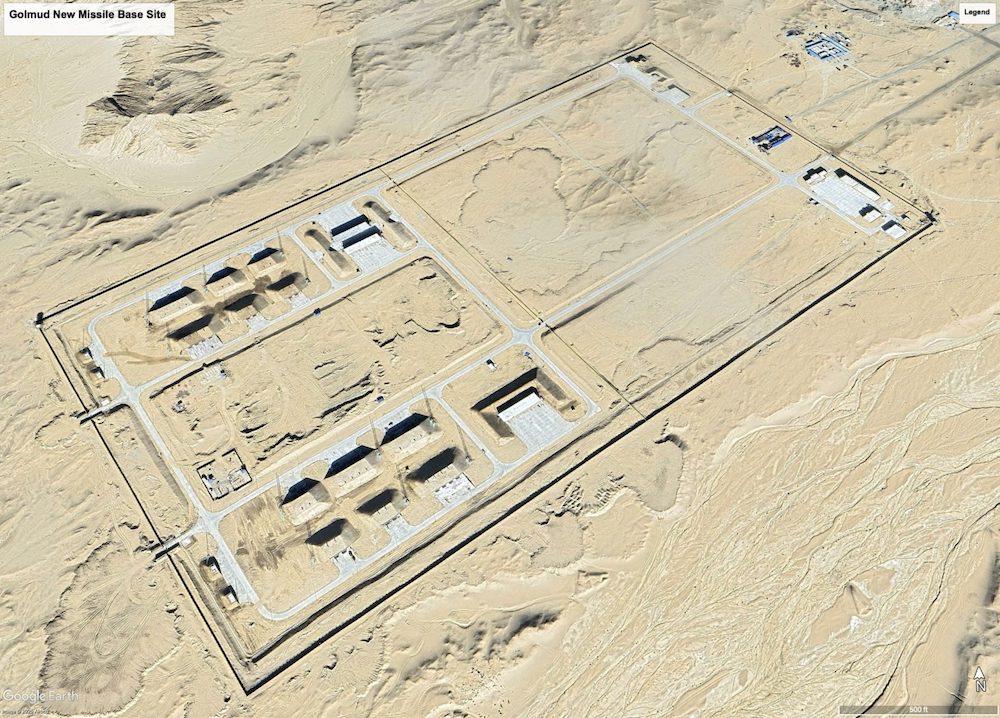1970-2010
By Bhuchung D. Sonam
 Daja Wangchuk Meston was born in Switzerland to an American couple. When he was three years old, his mother brought him to Nepal and left him with a Tibetan family. At the age of six, Wangchuk became a novice monk in Kopan Monastery overlooking at the city of Kathmandu, and studied Buddhism. At 17, he left the monastery and moved to Boston, where later in 1996, he graduated from Brandies University.
Daja Wangchuk Meston was born in Switzerland to an American couple. When he was three years old, his mother brought him to Nepal and left him with a Tibetan family. At the age of six, Wangchuk became a novice monk in Kopan Monastery overlooking at the city of Kathmandu, and studied Buddhism. At 17, he left the monastery and moved to Boston, where later in 1996, he graduated from Brandies University.
“I stood on the third-story windowsill of a hotel in a remote part of Tibet, said, ‘Here I go,’ and jumped.”
It was August 1999. The Tibetan Plateau was still green from the last of the fleeting summer days. The turquoise blue sky stared from above as Gabriel Lafitte, a research associate at Melbourne University’s Institute of Asian Languages, Deja Wangchuk Meston, who was working for an educational charity affiliated to the Department of International Development at Harvard University, and Tsering Dorjee, their Tibetan translator, travelled in Amdo in eastern Tibet.
The trio rode a jeep while Meston took pictures of places along the road. The two foreigners were on a journey to find out the fate of Tibetan nomads, and to see the location of a proposed farming settlement. They did not know that the Chinese authorities were watching them closely.
It was a sensitive time. A few years earlier as a part of its Western China Development Programme, the authorities had announced an ambitious agriculture project in Dulan area in Amdo province. The planned project said that 45,000 square kilometre of fertile Tibetan land in that region would be turned into an agricultural community by transferring 61775 Chinese settlers. The World Bank, after studying the project, promised to loan $100 million. There were worldwide protests by Tibetans, their supporters and other organizations against the project.
In mid-August the Chinese security forces arrested Lafitte, Meston and Dorjee. After thirty-hour drive to Xining, a city on the northeastern tip of Tibet, the guards led them into a dimly lit vacant hotel. It was 2 a.m. Meston was 29-years-old and he was put in room number 301. The curtains were drawn. His world began to turn visibly dark.
They were subjected to interrogations, sometimes lasting up to six hours at a stretch.
It was a time of “calculated and systematic cruelty,” said Lafitte upon his return to Australia on 22 August 1999, after a strong protest to Beijing by the Australian Government.
The Chinese security personnel, however, confiscated Meston’s Minolta camera, seven rolls of film and his notes. After a series of interrogations, he was ordered to confess his crimes.
“Your offense,” the Chinese interrogators said, “was taking photos of an abandoned prison labour camp in an area that was off-limits to foreigners without a permit.”,i
“I was in the custody of Chinese authorities, unable to leave my room or make phone,” Meston later wrote in his memoir Comes the Peace. Constricted from his incarceration and desperate for freedom, he jumped from the third floor window of his hotel room, sustaining life-threatening injuries including a broken back and internal organ damage; his spleen was removed in emergency surgery in a provincial Chinese hospital.
The grassroots movement, including Meston’s dramatic jump, helped highlight the denial of rights and marginalization of Tibetans in Dulan area. In 2000, World Bank pulled out of the project. This was a victory.
Author, Tibet activist, the co-founder of Karma, fair-trade crafts shop in Newton, Massachusetts, and the Boston Tibet Network, Wangchuk-la, as the Tibetans fondly called him, was courageous man who helped and fought for those who were less fortunate than him. His life-long association with Tibetans and Tibetan culture made him one of the most passionate supporters of Tibet.
“There is no difference between him and a real full blooded Tibetan. He never thought of himself of anything but Tibetan. He was a real hero for the Tibetan cause,” says Tenley Palsang from Boston, who knew Wangchuk-la most of her life.
Wangchuk-la died on 11 July 2010 in Weston, Massachusetts. His sudden death shook the Tibetan society in Boston and his great many friends and admirers. Many are still in shock.
Yet, nothing is permanent, as Wangchuk-la knew so well from his time as a novice monk in the monastery and later from the detention by the Chinese authorities that led to his near-fatal injuries. In death, after a long battle with depression, he will surely find calm and solace. In the silence of a higher realm, where good souls gather, Wangchuk-la will have his peace and tranquility. And as we try to pick our lives again from his unexpected demise, he will smile at us from his abode if we fight for, and stand up to tyranny and the injustice done to those living under occupation.
Wangchuk-la is survived by his wife Phuntsok Dolma, their seven-month-old adopted daughter, Jasmine, and niece Tenzin Norzin and nephew Tenzin Sangpo.
(A memorial service in honour of Wangchuk-la‘s life will be held this Sunday, 1 August, in Boston organized by Robbie Barnett, Tenley Palsang and other friends. In attendance to speak and to perform, among members of his family and friends, will be John Ackerly of ICT and Techung.)
Writer can be reached at bhuchungdsonam@gmail.com









